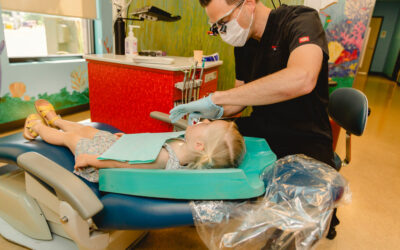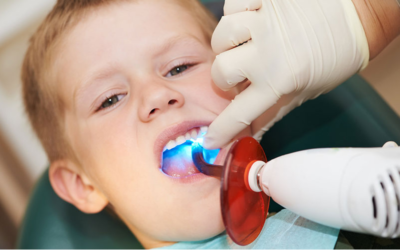Is There Ever A Reason to Extract a Baby Tooth? Won’t They Just Fall Out?
It may seem surprising, but there are times when a baby tooth must be extracted.
As primary (“baby”) teeth are important to a child’s dental development, every effort is made to avoid extracting them, but there are situations in which it is unavoidable.
The primary reasons for baby tooth extractions include infections, decay, injuries, and overcrowding.

Baby tooth extractions might be appropriate in the following cases:
- A severe infection or injury to the tooth (for example, if the tooth is forced into the jaw from a blow or a fall
- may cause damage to the underlying adult tooth as well, leading to a necessary extraction of the baby tooth.
- When an injury to the tooth causes damage or death of its nerves and blood vessels, extraction may be necessary.
- If crowding occurs while adult teeth are growing, the extraction of baby teeth can facilitate the entry of adult teeth and may even prevent the need for orthodontics in the future.
- In case that a tooth has decay (cavities) so extensive that it cannot be repaired by a filling, the tooth may need to be extracted.
- Decay can also lead to infection or abscess of the root of the tooth, also resulting in the need to extract the tooth.
- If crowding occurs while adult teeth are growing in, the extraction of baby teeth can facilitate the entry of adult teeth and may limit the time in orthodontics or even prevent the need for orthodontics or in the future.
What are the risks and complications of baby tooth extraction?
While most extractions go smoothly and require only local anesthetics, there are some possible complications and problems that can result from baby tooth extraction, including the following:
- The extraction allows adjacent teeth to gradually move into the empty spaces, which can affect the normal eruption of the adult teeth later on.
- Your dentist can provide a device to help maintain the spaces where they should be if needed.
- Pain – once the local anesthetic wears off, there may be mild and temporary pain. It can usually be managed with over-the-counter medications.
- Bleeding – some bleeding can also occur in the hours and days after the extraction. Bleeding can be managed by placing gauze in the space and pressing it down for about 10 minutes.
- The local anesthetic may lead to children biting or rubbing the numbed area without realizing they are causing damage. Children should be supervised until the feeling has been restored.
What after-care is needed once a baby tooth has been extracted?
It is important that children be supervised after a tooth extraction, as there are potential problems that can occur that children won’t be able to handle on their own:
- Children must avoid biting or sucking on the lips or cheeks while still numb, as they could damage their mouths without realizing it.
- Excessive physical activity should be avoided on the day of the extraction, in order to prevent dislodging the clot and causing bleeding.
- Children should be advised never to place fingers, pencils, or any other object in the mouth after an extraction.
- Children should avoid eating sharp or crunchy foods such as chips or crackers for up to 3 days after an extraction.
Pediatric and Orthodontic care at Adventure Dental
The decision whether or not to extract a baby tooth is one best made in consultation with your dentist, so feel free to ask any questions you may have before deciding on the best course of action for your child. If your child is older, you may wish to include him or her in the decision as well. More information can be found at adventuredental.com or by calling (360) 604-9000.



